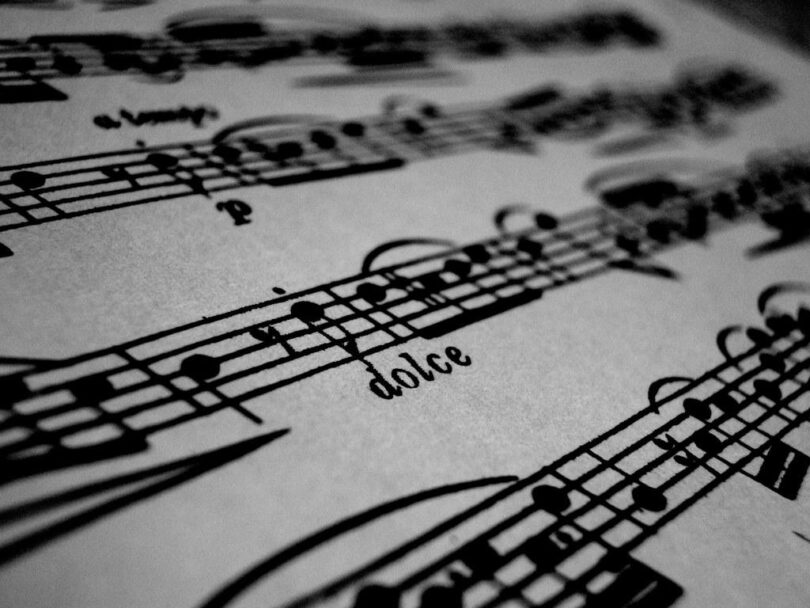Turn up the volume and let the music take over! For centuries, people have enjoyed different genres of music, and each one has left a memorable impact. Whether it be rock, rap, country, jazz, or anything in between, different styles of music have the unique power to unite people from different backgrounds and cultures. As we look to honor each genre, here’s a celebration of their remarkable legacy and influence.
1. Capturing the Music’s Evolution
Over time, music genres have been ever-changing, and their evolution has been an adventure. As there is continuously new music in the making, with each genre taking on its own unique qualities, we can all be thankful for what we have now and pay homage to how far it has come. From the classical music genre during the medieval times, where composers focused on polyphonic concepts and members of the Church influenced the direction of music making, to the Neo-Classical styles of the nineteenth century that blossomed in the wake of the Romantics and focused primarily on virtuosity, to the Latin-inspired fusion music in the late twentieth century, so much has taken place.
Honoring the music genre does not just mean celebrating its influence in the past, but also recognizing the present and looking forward to future contributions. In the modern era, the boundaries between genres are often blurred, with new sounds and combinations being created every day. From rock and folk to punk and hip hop, to jazz and country, to fusion and experimental, the sheer variety and innovation of genres is invigorating.
Classic and Folk Genres: The earliest forms of music, such as classical and folk, emphasized basic elements, yet often included complex rhythms and intricate melodies. Because of the creative freedom these genres allowed for, they produced an array of revolutionary works that are still remembered and highly appreciated today.
Jazz Genre: Jazz was another groundbreaking music genre that was hugely influential in the early twentieth century. This expression form combined elements of blues, ragtime, and spirituals, creating an improvisational and swagger-filled style. Later on, the development of jazz went in different directions with the emergence of bebop, modal jazz, and more fusion-based sounds.
Rock Genre: The advent of modern rock in the 1950s was immensely popular and ushered in a new era of loud and creative music. Either relying on catchy hooks and tight arrangements or exploring the sonic possibilities of electric instruments, rock pushed the boundaries of music further than ever before.
Country Genre: Country music is another genre rooted in the classic style, yet with its own unique character. These tunes often focused on stories told through simple yet appealing melodies, accompanied by a gentle rhythm of the guitar.
Hip-Hop Genre: This relatively new genre reflectingBLING brought forth a whole new set of musical concepts and possibilities, from sampling to DJing and from rap to turntablism. These styles injected youthful energy into popular music, yet still kept a connection to the original genres from which they emerged.
Therefore, no matter if you’re a fan of classical or the modern-day hip hop, it is essential to acknowledge the various genres’ growth and recognize the indelible marks they made. Honoring the music genre by celebrating their legacy and influenceis a great way of recognizing the beauty of music and a journey of its evolution.
2. Exploring Its Influence
The second chapter of our feature dives into the impact of some of the most iconic music genres. Through a tone of nostalgia, we examine the indelible mark made by musical genres such as blues, rock & roll, surf rock, hip-hop, and organ jazz.
- The Blues – This traditional form of African American music, drew from spirituals, work songs, field hollers, and African chants. It is characterized by its heavy use of call-and-response vocals, repetitive verse-chorus forms, and its improvisational side through which a musician would express strong emotion. It was a deeply personal form of music that found a worldwide audience, and continues to influence music to this day.
- Rock & Roll – This genre, which gained in popularity in the 1950s, combines creative elements of blues, country, and rhythm and blues. It has influenced many newer genres, including heavy metal, punk, alternative, and metalcore. Its iconic artists such as Elvis Presley, Jerry Lee Lewis, and Chuck Berry, are an integral part of the music history of modern pop.
- Surf Rock – Rising in popularity in the early 1960s, this genre of rock music drew its influence from western surf and hot rod culture. It features catchy melodies with prominent electric guitars reminiscent of waves crashing. Instrumentally and lyrically, it has a whimsical undertone, offering an air of nostalgia. Bands like The Beach Boys are credited with popularizing this genre.
- Hip Hop – Emerging as an alternative to more traditional genres, hip hop is characterized by its focus on sending a message through sound. It heralded a major shift in popular music, mixing melody and drum beats in a way that defined the popular music of the late 20th century. Its widespread success has made it the building blocks for many genres that have come since.
- Organ Jazz – Stemming from soul jazz and R&B of the 1940s, this genre is distinguished by its ability to combine jazz and the sound of the Hammond B3 organ. It is strongly influential to music culture of the 1950s and 1960s. The iconic musicians have helped shape the sounds of modern jazz, with famed performers such as Jimmy Smith and Jackie McLean still influencing jazz today.
These iconic music genres and their influence have shaped our music cultures and provided a major influence on popular and modern music. It is important to understand these genres and their significant contributions in order to appreciate the music the world today.
3. Celebrating the Legends
Since the dawn of pop music, certain genres have acted as the forefront of the industry, leaving indelible marks on future generations of sounds. Through marrying the past and the present, the influence and legacy of classic music genres like rock, jazz, and hip-hop can still be heard in all arenas of popular music.
Realizing the Importance of the Classics
Knowing the significance of iconic music genres is just as important as knowing the artists themselves. When it comes to chart-topping hits this year, chances are they all have roots in a style of music that has been around for generations. This doesn’t just go for the Billboard Top 100, but all music genres in general.
Heirloom of Music Genres
The success of classic genres throughout the history of popular music is a testament to the sheer magnitude of their influence. From the blues being the foundation of rock and roll, its legacy continues to this day, from modern synthesizers, digital audio cues, and much more. Jazz, folk, classical, and hip-hop have too been a part of the conversation, staying relevant by continuously changing itself within a certain context while never forgetting its roots.
Another example of the importance of music genres comes from the rise of EDM in the 21st century. It has taken elements from classic genres, like house and trance, mixed with current elements, to create an entirely new subgenre of EDM. While EDM may never reach the heights of classic genres, its very existence would not have been possible without them.
- Rock & Roll spawned the sounds of stadium rock, and its still holds a heavy influence in rock music today.
- Jazz started under oppression, but after multiple reinventions has become a symbol of unique artistry.
- Hip-hop is one of the most dominant genres today, with its story-driven lyrics and raw energy.
- EDM has married past and present to create an entirely new sound.
The world of popular music would be an entirely different place if it weren’t for the lasting impression of these classic genres. It is with this in mind that we must all stay mindful of the star-studded acts of the past, as today’s music is built from its legacy.
4. Reflection on Music Trends
Music has been around for centuries and in that time, many genres of music have come and gone, leaving an ever-evolving web of sounds and incredible influence. Who can forget their favorite artist or genre of music from their past; whether it be classical, blues, folk, or jazz.
This post is about honoring these genres and the legacy they have left behind. To start, looking back at the beginnings of traditional music styles, such as:
- Classical Music: Drawing from the elaborate works of Beethoven, Mozart and much more, classical music artfully combined strings, brass, and woodwind instruments to bring melodies to life.
- Folk Music: The up and coming genre that was mostly known for its country roots, acoustic delivery and storytelling qualities.
- Big Band Jazz: Improvised and swinging jazz tunes that filled the air in the 1920s, lead by marathon drum solos.
It was clear to see that a lasting yet ever-changing artistic mark was being made on the world of music. As time moved on, new styles such as hip-hop, rock n roll, and punk music emerged and created a completely new way of expressing and enjoying music. Then came the 90s, giving us the likes of boy bands, gangsta rap and even techno music.
The way in which all these genres have connected and served as a platform, allowing for new energy, ideas, and movements to rise, is nothing short of amazing. And now music expression through technology means that creative voices can more easily be heard all around the world, creating a truly unique experience.
Ultimately, each genre has left its impression on the world in some way. From the way we dance to the way we talk, music has shaped our culture and continues to be a major influence today. It’s a powerful tool in driving positive change and finding solace in these times of unprecedented challenges.
Regardless of what kind of music you listen to, honoring music genres is a way to recognize the impact they have had over the years and celebrate their legacy. So whether it’s hip-hop, heavy metal, or classical, take a moment to appreciate and recognize the talents, experiences, and connections that have brought us these incredible pieces of music.
5. Appreciating the Artistry
Discovering Their Rich Histories. Discovering the histories of each of the genres can lead to a greater appreciation for them. Knowing where a genre comes from and who was involved in its development can help us better understand the music’s current and future impact. From discovering the many influences on jazz music to finding out the impact that Disco had on the music industry, there is always more to learn about the genres.
Respect for the Innovators. There are many legendary musicians in every genre who have helped shape the music to its current form. These innovators deserve our respect. From Miles Davis, who helped to innovate the sound of jazz to Beyonce, the Queen of Pop, every musician is worthy of recognition for their outstanding use of creativity.
Appreciating & Honoring the Diversity.
- Celebrating different forms of music
- Respecting music from diverse cultures
- Giving credit to other genres of music
- Understanding the different styles of music
Music is an expression of diversity, and every genre brings something unique to the music industry. By celebrating the diversity of the music, we can honor the different cultures and people who create it, while also creating a platform for future generations of musicians to create their own.
6. Honoring the Genres’ Legacy
At the core of any great genre of music is its legacy – a powerful combination of influence and impact that has been passed down to those who continue to make waves in the music world today. As we all know, genres don’t stand still – they adapt, merge, and evolve in order to keep up with the times. So to honor the past and the immortal contributions left by the artists that came before us, it’s important to take a moment to celebrate the many achievements and successes of the music we know and love.
Below, we’re focusing on some of the main genres and their unique histories – from the origins of hip hop to the birth of rock ‘n’ roll and beyond, we take a look back at the defining moments that shaped the genres of today.
- Rock – From the classic rock sounds of Led Zeppelin to the piercing riffs of AC/DC, the genre of rock has been around for decades. As one of the most innovative and influential of all musical genres, it has helped bring forth a new style of music, making it a cornerstone of pop culture and popular music.
- R&B – R&B (or Rhythm and Blues) is a genre that developed as a combination of jazz and blues in the 1940s. It has had a massive influence on modern pop music, and while it has evolved over time, its soulful, passionate beats remain a fixture in some of the best pop songs of all time.
- Hip Hop – Developed by African Americans in the Bronx in the 1970s, hip hop has gone on to become one of the most popular genres in the world. From conscious rap about social issues to trap anthems about the street life, hip hop has a wide range of styles. But no matter the sound, the genre has an undeniable impact in and out of the music world.
- Pop - Pop music is a relatively new genre that developed in the 1970s, drawing on influences from rock, R&B, and even folk. Since then, pop has exploded in popularity and been a mainstay on the charts for decades. As the type of pop music continues to evolve, it’s clear that this genre will be going strong for years to come.
As you can see, each genre has left its mark in the evolution of music. Whether it’s rock, R&B, hip hop, or pop, these genres have shaped the sounds that dominate the music industry today.
As music fans, it’s our responsibility to both uphold and celebrate the legacy of these great genres, and to remember the impact they’ve had on the world. The next time you turn on the radio or download a song, take a moment to think about where the sound comes from and why it matters.
7. Recommending Music for Further Enjoyment
Music, much like any other form of art, serves as a reflection of a culture as well as a snap shot of a moment in time. It is a timeless form of expression that encapsulates our feelings, experiences, and moments. Music genres pay homage to all of that and more. From jazz to classical, hip-hop to punk, rock to R&B, music genres each have artifacts, styles and sounds which have helped contribute to the rich musical landscape, many of which are commemorated in their respective genres.
Simultaneously, music genres are constantly evolving over time while making sure to stay true to its’ values, something that can be seen across all genres of music. This makes them timeless to audiences, regardless of when they were born. It also offers an unique opportunity to pay tribute to these genres, and the artists that helped shape them over time.
For every rock fan, there was the blues shouter and for every jazz enthusiast, there was the Big Band Orchestra. These genres and the sounds that resonate with fans for decades are worth celebrating. Here are a few ways you can honor the music genres that have shaped the landscape of music:
- Educate yourself: There is great deal of information online about the many genres of music so doing the research into your favorite genres and those you want to get into is a great place to start. Doing so will give you better insight into the core of each genre and will also give you a better understanding of the artists and musicians that helped create and evolve it.
- Listen to music from different genres: Listening to pieces from different genres will help you gain a greater appreciation for the music as well. Taking even a few minutes out of your week to explore various forms of music can make a big difference.
- Support the creatives: Whether it is going to music festivals and concerts, purchasing music from up-and-coming artists, or simply following the movements of established artists on social media, there are many ways to pay tribute to the artists that honor the music genres.
- Recommending new music: By recommending new music to others, you can help to broaden the horizons of what music can achieve. Sharing any music that you think is great and encouraging others to do the same, will help expose people to different genres of music that they may never have experienced otherwise.
It is clear that music genres have shaped the way in which people experience and learn about music and that is something worth commemorating. Respectively honoring the music genres of yesterday, today, and the future, will make for a harmonious musical experience built on a foundation of appreciation and respect.
The music genres we know and love never cease to amaze us. From Folk to Funk, these little gems of human creativity will live on forever, having left an impact beyond any words, long after the last song has been sung. Let’s keep honoring their rich legacy, letting their timeless tunes continue to inspire and unite people from all walks of life.








